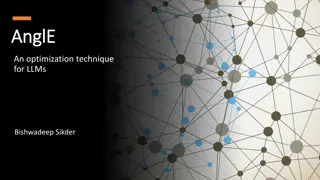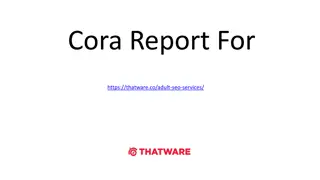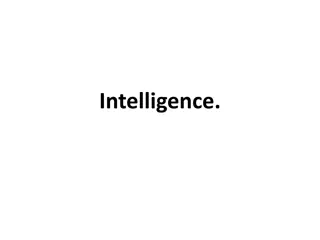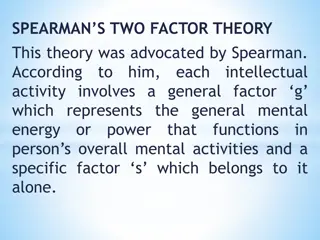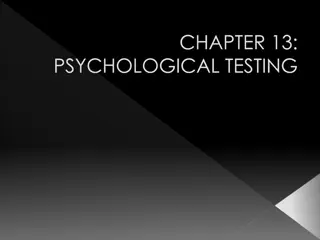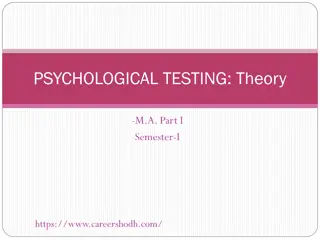AnglE: An Optimization Technique for LLMs by Bishwadeep Sikder
The AnglE model introduces angle optimization to address common challenges like vanishing gradients and underutilization of supervised negatives in Large Language Models (LLMs). By enhancing the gradient and optimization processes, this novel approach improves text embedding learning effectiveness.
9 views • 33 slides
Theories of Intelligence: Monarchie vs. Spearman's Two-Factor Theory
The Monarchie Theory of Intelligence posits a single factor of intelligence, while Spearman's Two-Factor Theory divides intelligence into a general ability (G-factor) and specific abilities (S-factors). The implications of these theories on educational practices are discussed, shedding light on the
11 views • 25 slides
Understanding Cora Analysis and Its Impact on SEO Practices
Cora analysis involves extracting information from URLs to enhance SEO visibility. By leveraging Spearman & Pearson correlation algorithms, one can identify ranking factors. This analysis compares competitor data to improve SEO strategies. Recommendations may include optimizing H1 tag usage for bett
0 views • 58 slides
Understanding Different Theories of Intelligence
Intelligence encompasses various abilities including adaptability, capacity for knowledge, reasoning, and more. Theories such as Spearman's two-factor theory and Sternberg's Triarchic Theory offer insights into different aspects of intelligence, highlighting factors like problem-solving abilities, c
1 views • 11 slides
Understanding Spearman's Two-Factor Theory
Spearman's Two-Factor Theory posits a general mental energy factor (g) and specific abilities factors (s), determining individual intelligence. The g factor is innate and crucial in various activities, while the s factor is acquired and varies per task. Despite criticisms regarding the oversimplific
0 views • 9 slides
Insights into Theories and Definitions of Intelligence
Various psychologists throughout history have defined intelligence in different ways, highlighting aspects such as judgment, reasoning, adaptation, problem-solving, and overall mental capacity. From Binet to Gardner, each perspective sheds light on the diverse facets of intelligence, emphasizing the
3 views • 52 slides
Understanding Psychological Testing and Intelligence Theories
Exploring the world of psychological testing, this information covers the characteristics of testing such as reliability and validity, standardization, and norms establishment. Delving into intelligence testing theories like Spearman's two-factor theory and Thurstone's opposing views, it sheds light
1 views • 33 slides
Evolution of Psychological Testing: From Ancient Methods to Modern Applications
Delve into the historical journey of psychological testing, exploring its roots in ancient China and Greece, through the establishment of standardized testing systems in the 19th century, to the contributions of key figures like Francis Galton and Charles Spearman. Learn about the development of psy
0 views • 33 slides
